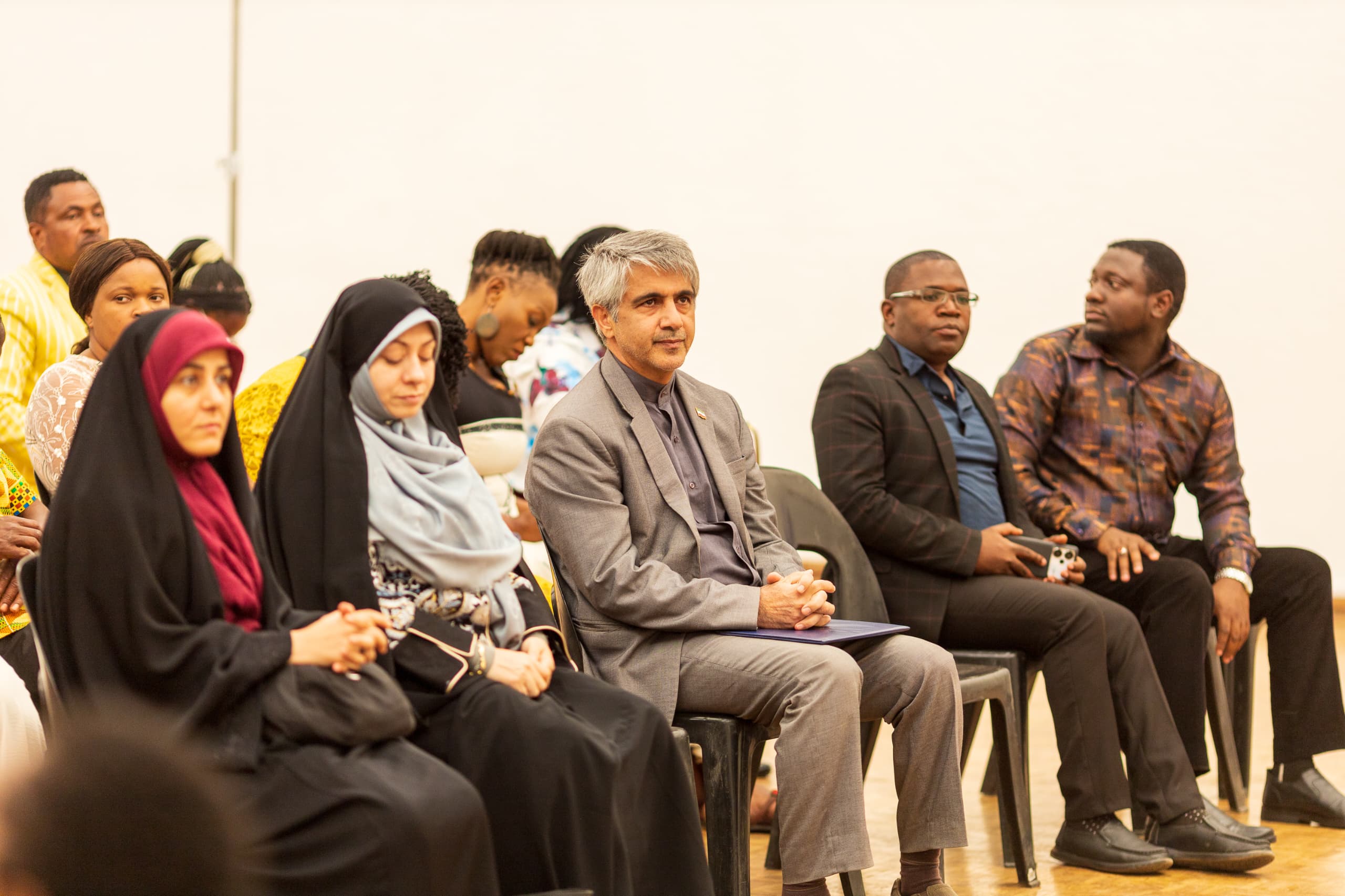Delegates following proceedings at the Zim-Iran Cultural Exchange program in Harare
By Dickson Bandera
Iranian Ambassador to Zimbabwe, His Excellency Abbas Navazani, on Friday expressed that Iran is enjoying strong mutual relations with Zimbabwe and remains committed to expanding these ties across various areas of life for the mutual benefit of both nations.
Speaking in an interview with journalists at the Zimbabwe-Iran Culture Exchange Program, organized by the Women Writers Support Network-Africa in collaboration with the Iranian Culture Centre, the ambassador highlighted the importance of deepening cultural relations.
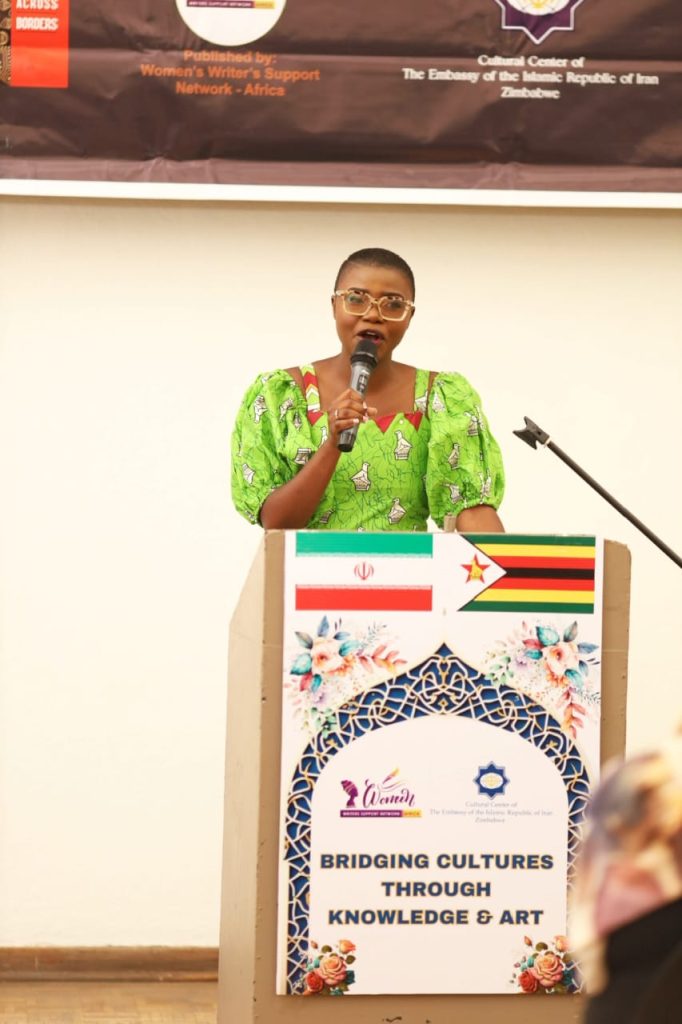
“Iran and Zimbabwe have a strong political and economic relationship, and we are actively working to expand our cultural ties. Today marks an important step in strengthening these cultural relations,” Ambassador Navazani said.
“We aim to exchange views with Zimbabwean cultural sectors and share our experiences to help Zimbabwean women expand their roles in political, economic, and cultural areas,” he added.
The Women Writers Support Network-Africa was founded by seasoned author and journalist Sympathy Mangwenya, who is making significant strides in promoting women creatives across the country.
The event, which drew around 400 attendees, mostly women, followed another workshop held in Avondale on Thursday. At that workshop, about 170 women participated, gaining insights into Iranian culture, discussing the status of women in Iran, and exploring ways to enhance cultural ties and women’s empowerment.
The ambassador also noted the importance of inviting distinguished individuals to the event.
“We invited a prominent professor from Al-Zahra University, the largest women’s university in Iran, which specializes in women’s education,” he added, underscoring the role of academic exchange in promoting discussions about women’s roles in both countries.
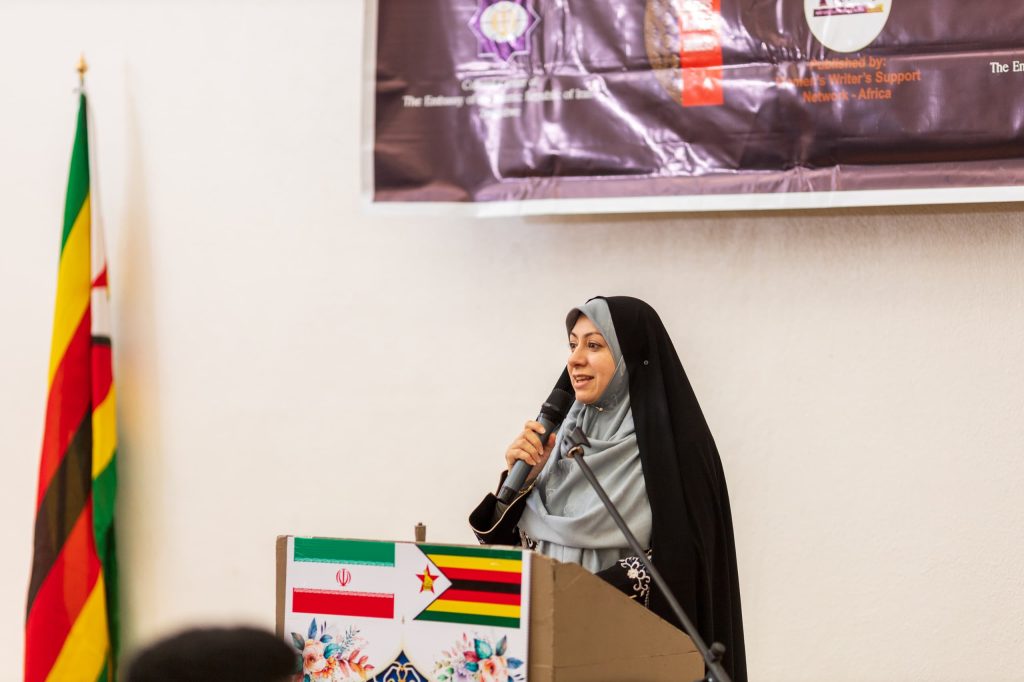
“After the Islamic Revolution, Iranian women have played significant roles in the economy, science, and government,” he added emphasizing the strides made in women’s empowerment.
“Many Iranian women serve as members of parliament and ministers,” he noted, showcasing Iran’s efforts to empower women politically and economically.
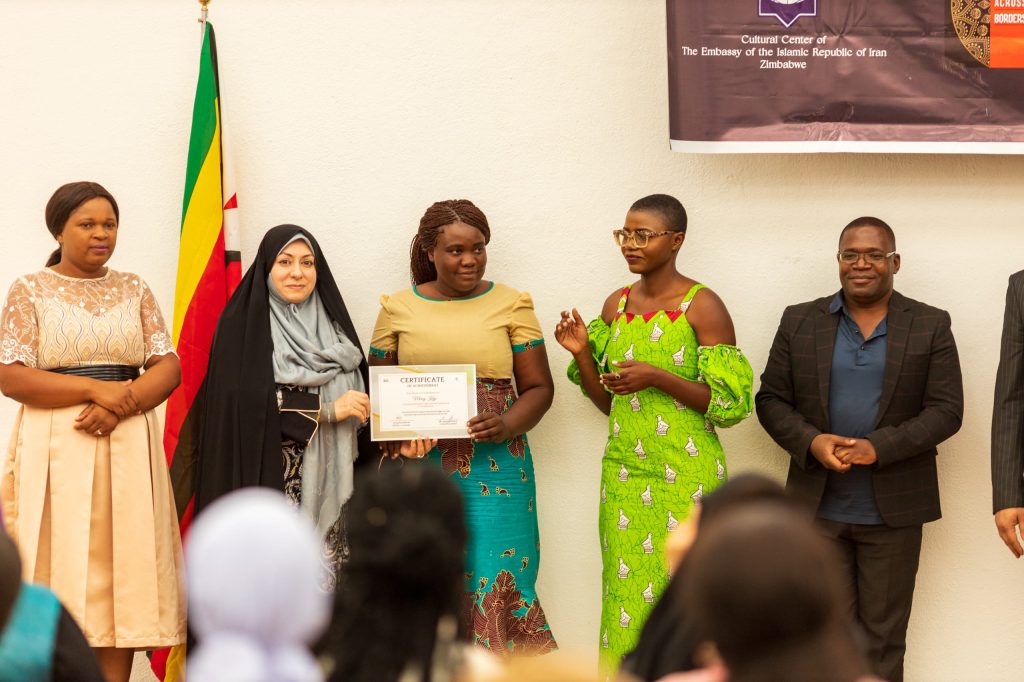
During the event, a book titled “Sisters Across the Borders” was launched, featuring the creativity of women artists from both Iran and Zimbabwe. Contributors akao received certificates fir their participation in the projects, with the best outstanding contributions receiving cash prizes.
The cultural exchange attracted students, creatives, journalists, government officials, and culture enthusiasts from both nations, further enriching the dialogue.
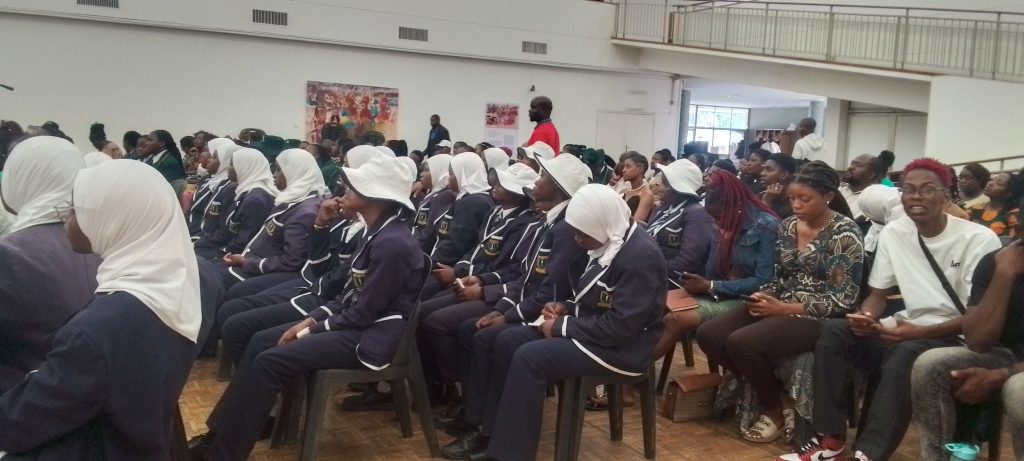
In his speech, the ambassador also addressed the suffering of women in Gaza and Lebanon due to the ongoing violence by the Zionist regime. He stressed the importance of global solidarity in supporting women in these regions.
“It is crucial for women around the world to support the women of Gaza and Lebanon, who are suffering under this oppressive regime,” he said, a message that resonated strongly with the audience, reinforcing the need for unity.
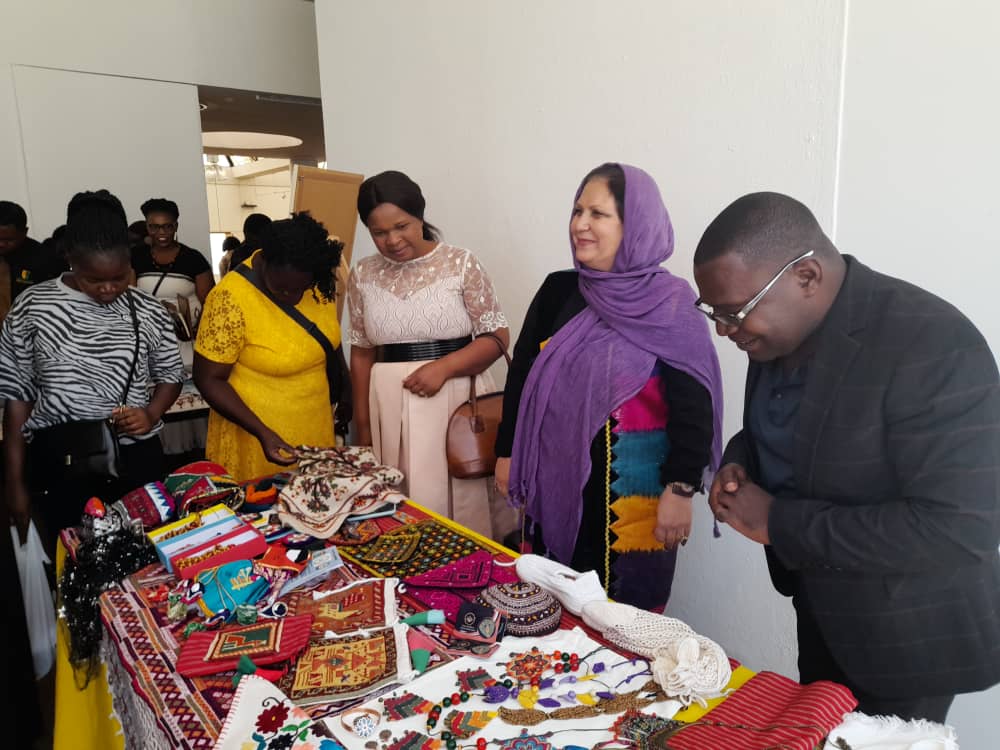
The program did not only fostered cultural exchange but also ignited a collective call to action, reminding attendees of the global struggle for women’s rights and the necessity of standing together in solidarity.
Iran is a country in the Middle East, located between the Caspian Sea to the north and the Persian Gulf to the south. It shares borders with several countries, including Iraq, Turkey, Afghanistan, and Pakistan. With a population of about 85 million people, Iran is a significant regional power, known for its rich history and cultural heritage, dating back to ancient Persia.
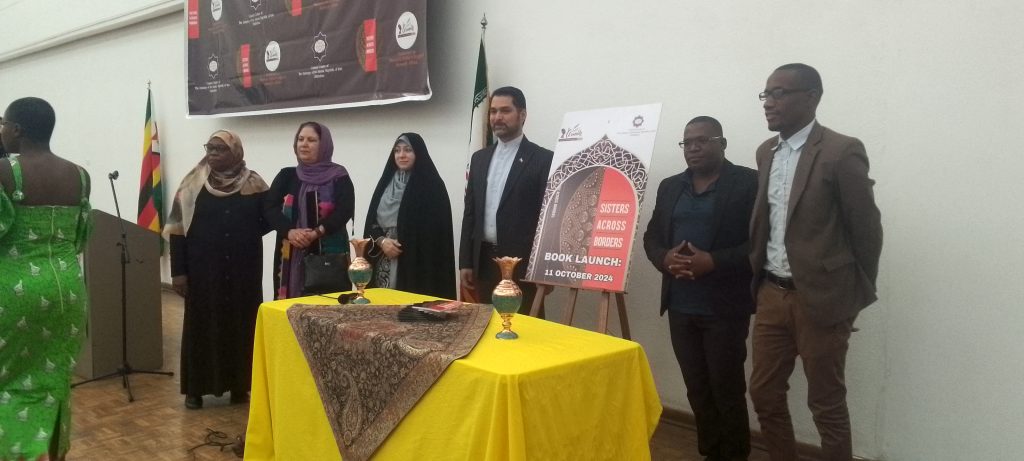
Tehran is the capital city. Iran’s official language is Persian (Farsi), and the majority of the population practices Shia Islam. The country has a theocratic government led by a Supreme Leader, who holds significant power, and a president who oversees the executive branch.
Iran is rich in natural resources, particularly oil and natural gas, making energy exports a key part of its economy. However, international sanctions have affected its economic development.
